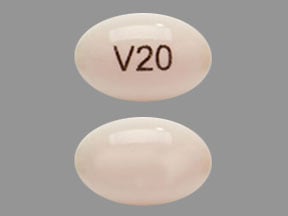
My prescription
Edit
20MG, Isotretinoin (30 Capsules)
Select pharmacy

CVS
$50.93
COUPON PRICE
Albertsons
$69.72
COUPON PRICE
Walgreens
$87.90
COUPON PRICE
Walmart
$89.23
COUPON PRICEIsotretinoin savings card
Show this card to your pharmacist
CVS
$50.93
BIN
ID
PCN
GRP
019876
LH2EAB857C
CHIPPO
LHX
Powered by
More prescriptions for acne
More prescriptions for acne
Price history for Claravis (brand) & Isotretinoin (generic)
30 Capsules, 20MG
Average retail price for Claravis
Average retail price for Isotretinoin
Average SaveHealth price for Isotretinoin
Our price history data is based on aggregated prescription data collected from participating pharmacies in America. Our prescription data updates daily to reflect the latest price changes. If you notice a missing data point, it means there wasn't sufficient data available to generate a monetary value for that date.
We analyzed Isotretinoin prices for (20MG, 30 Capsules) over the last 12 months. The average retail price was $538.23, while the average price using the SaveHealth discount card was $72.80. That's a savings of approximately 86.47% when using our Isotretinoin coupon.
Compared to the generic version, Claravis had an average price of $741.09 over the same time period. With the SaveHealth savings card, Isotretinoin is 90.18% cheaper on average than Claravis.
*Retail prices are based on pharmacy claims data, and may not be accurate when we don't have enough claims.
Isotretinoin dosage forms
Dosage Quantity Price from Per unit 10MG 10 Capsules $22.21 $2.22 10MG 30 Capsules $54.17 $1.81 20MG 30 Capsules $50.93 $1.70 20MG 10 Capsules $29.18 $2.92 25MG 10 Capsules $112.48 $11.25 25MG 30 Capsules $300.83 $10.03 25MG 60 Capsules $583.37 $9.72 30MG 10 Capsules $29.18 $2.92 30MG 30 Capsules $50.93 $1.70 30MG 60 Capsules $83.57 $1.39
| Dosage | Quantity | Price from | Per unit |
|---|---|---|---|
| 10MG | 10 Capsules | $22.21 | $2.22 |
| 10MG | 30 Capsules | $54.17 | $1.81 |
| 20MG | 30 Capsules | $50.93 | $1.70 |
| 20MG | 10 Capsules | $29.18 | $2.92 |
| 25MG | 10 Capsules | $112.48 | $11.25 |
| 25MG | 30 Capsules | $300.83 | $10.03 |
| 25MG | 60 Capsules | $583.37 | $9.72 |
| 30MG | 10 Capsules | $29.18 | $2.92 |
| 30MG | 30 Capsules | $50.93 | $1.70 |
| 30MG | 60 Capsules | $83.57 | $1.39 |
| 35MG | 10 Capsules | $89.66 | $8.97 |
| 35MG | 30 Capsules | $253.97 | $8.47 |
| 40MG | 10 Capsules | $29.13 | $2.91 |
| 40MG | 30 Capsules | $50.93 | $1.70 |
| 40MG | 60 Capsules | $83.57 | $1.39 |
